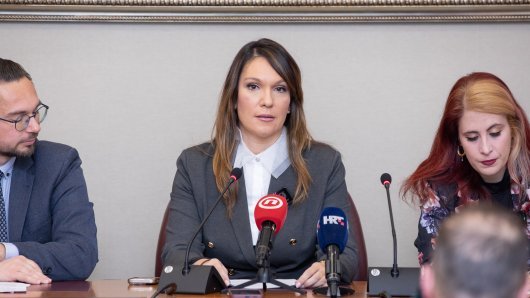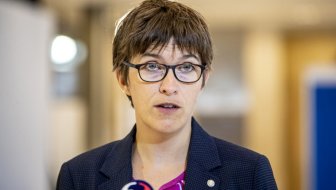The ruling coalition is stable despite different opinions on issues such as the law on the European Arrest Warrant (EAW) and the building of Justice Square in Zagreb, Entrepreneurship Minister Gordan Maras said on Monday.
Of all the coalitions from the first multiparty election, the incumbent coalition is the most solid and it will remain solid and stable until the end of its term, Maras told the press when asked to comment on the latest disagreements within the coalition regarding those two matters.
The coalition members need not have the same position on everything and if the positions are different, they are put up for discussion, after which a joint position is made public, which will happen in these two cases, said Maras, who is a vice president of the senior coalition party - the Social Democrats (SDP).
Foreign Minister Vesna Pusic of the coalition's junior Croatian People's Party (HNS) said last week that Croatia's law on the application of the EAW would be amended in a few weeks, while Prime Minister Zoran Milanovic (SDP) said a day later that the government would certainly not be deciding on said law in the next few weeks, but that Justice Minister Orsat Miljenic would reply to a letter by European Justice Commissioner Viviane Reding on this matter.
Speaking of the Justice Square project, Maras said he was for building something which was profitable and which relieved the budget and the taxpayers. He said it was not bad to involve private capital in such endeavours.
He said the decision on the construction should be made by the Justice Ministry because it provided the funds for it. "We will adopt a decision that is good for the economy and the budget, and articles on a disagreement between the economy and justice ministries on the Justice Square are a media spin."
According to a project presented by Economy Minister Ivan Vrdoljak (HNS), the square in Zagreb's Crnomerec neighbourhood should house the county, civil, commercial and magistrate's courts as well as the county and municipal prosecutors' offices and the Judicial Academy.
Works on this public-private partnership (PPP) project are expected to begin in 2015 and completed in 2019. Vrdoljak said the government was serious about the project, that private investors were interested, and that the PPP framework had been finalised.
According to one newspaper, Justice Minister Miljenic said in a letter to Vrdoljak that he disagreed with the project because the funds for it had not been secured, and that non-production investments in times of crisis were questionable.




































